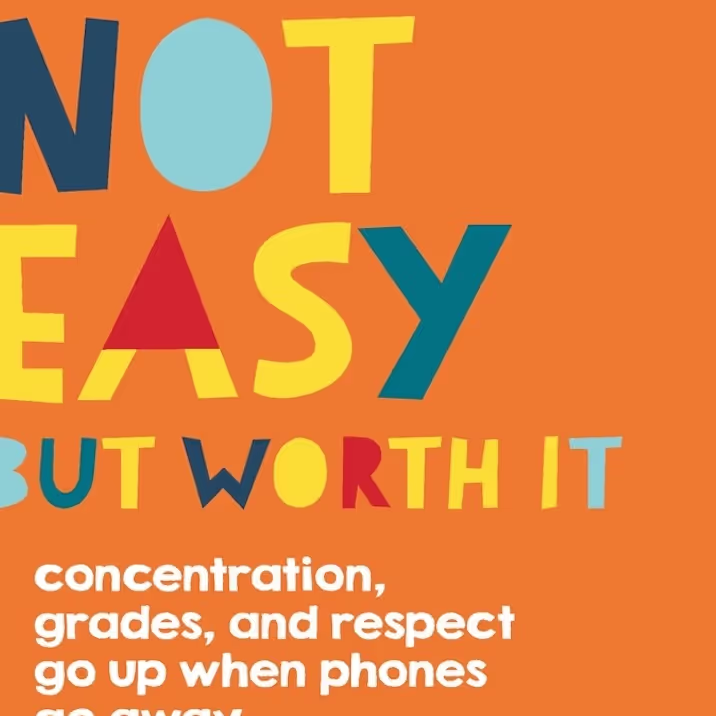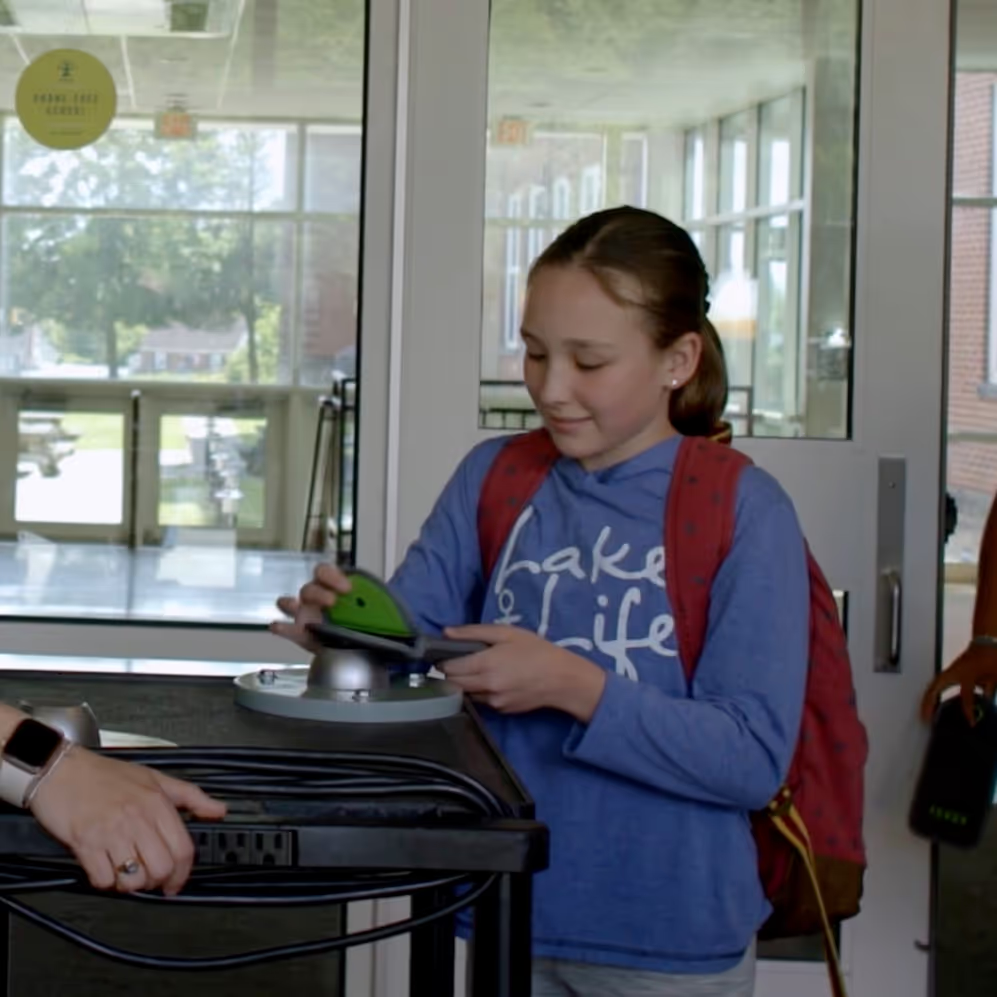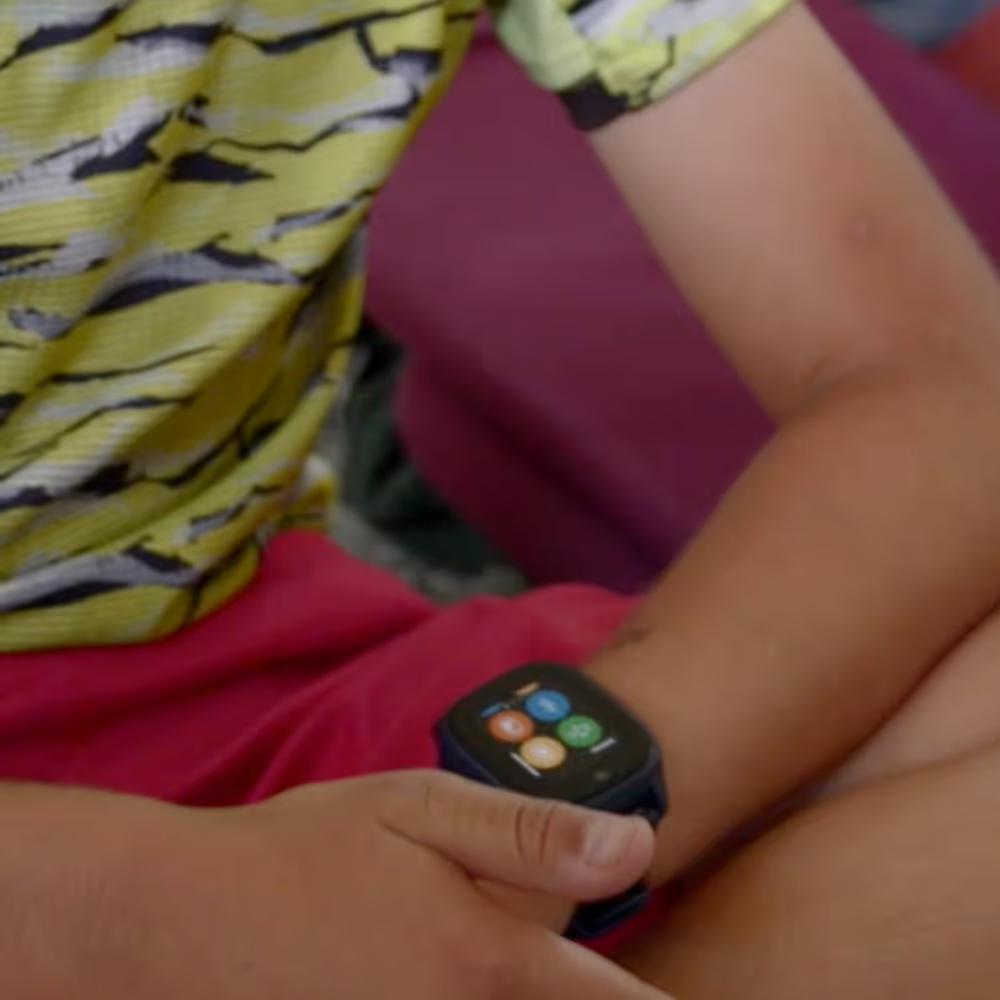


Last week The New York Times ran a story titled, “The Digital Gap Between the Rich and Poor Kids is Not What We Expected.” Research shows that low-income kids spend about 2 hours more a day on screens outside of school—due to many factors, such as less access to after school enriching experiences. The article looks at concerns that lower-income public schools will become screen saturated, while private schools will have more resources for less screen saturation.
The author writes about how affluent parents, generally with students in private schools, are demanding less screen time in school. The reality is, it is not only wealthy parents that are raising concerns about the amount of screen time in schools, but parents from all socioeconomic backgrounds are doing so.
Fact: Schools experience pressure to have tech on their campuses from tech companies, administration, and others. Schools want to do well by their students and tech has been sold as a quick fix. For example, schools keep hearing from tech and curriculum companies that ways to “personalize and customize learning” is right around the corner. Unfortunately, it has been a very long corner with no impressive results yet.
A quick fix example in the NYT article that shocked me is that Utah is rolling out an online preschool, which 10,000 children are enrolled thus far—no joke. Given that Utah lacks a state-funded traditional preschool program, one can see how the screen has stepped in.
Older students know when screen time is not adding value. Two weeks ago I was speaking at a large education conference where I heard this often. For example, a high school World History teacher said that whenever he introduces a computer-based program, students immediately chime in and ask, “What is the purpose of it, why even do it online?”
Let's look at the situation around cell phones. My team and I conducted a national survey last year about cell phones in schools where we found that public middle schools are much more likely to allow students to carry phones all day (66%) compared to private schools (34%) where phones are kept in lockers or backpacks. When students are allowed to carry their phones, research shows they are much more likely to sneak them in class. There is no judgment here—they are not bad students if they sneak—it is just very hard for some students to resist the pull of everything happening on their personal phone. Research shows grades and emotional well being are improved with the policies that private schools are doing more often.
Last week I spoke to Kristina Rodgers, the principal at my daughter’s public high school in Seattle where they changed their cell phone policy this year to ban access during class. She said the new rule has been easy to enforce and the results are apparent by the way kids are focusing more than before. At the recent curriculum night, parents burst out in applause when the new policy was mentioned.
Rodgers told me how discouraging it is that her school is the only public high school out of 12 in the area that has her policy while several of the elite private high schools in the area have banned phones during class time.
Many of you know about our site AwayForTheDay.org that gives tools to get better phone policies in schools and we are super excited that, due to parent and teacher request, we have created posters that can be put up in schools! Click HERE, and press the button that says “free posters,” download them, and then you will see several to choose from. These posters will help reinforce good cell phone practices.
We are looking for feedback from people whose school has made a change to their cell phone policy in the past year. If your school has made a change recently, would you mind clicking here to answer 3 quick questions?
In summary, the reason the NYT article is important is that it addresses one of the issues I am most passionate about: How to get parents and schools working together to do best by our children. All parents and educators want kids to learn and do wonderful things in school and to have meaningful interactions with teachers, peers, and staff. No one wants children glued to screens all day in school.
Thousands of schools around the world have presented Screenagers to their students, staff, and families, and many tell us they are committed to continuing the conversation around supporting screen time balance for their students. Educators can now access the film plus a 3-part Professional Development series developed by Learners Edge and Screenagers to dramatically impact the culture of learning in your school. Request more information about this 6-hour ready-to-use Professional Development module.
Learn more about showing our movies in your school or community!
Join Screenagers filmmaker Delaney Ruston MD for our latest Podcast

Learn more about our Screen-Free Sleep campaign at the website!
Our movie made for parents and educators of younger kids
Learn more about showing our movies in your school or community!
Learn more about showing our movies in your school or community!
Join Screenagers filmmaker Delaney Ruston MD for our latest Podcast

Learn more about our Screen-Free Sleep campaign at the website!
Our movie made for parents and educators of younger kids
Join Screenagers filmmaker Delaney Ruston MD for our latest Podcast
As we’re about to celebrate 10 years of Screenagers, we want to hear what’s been most helpful and what you’d like to see next.
Please click here to share your thoughts with us in our community survey. It only takes 5–10 minutes, and everyone who completes it will be entered to win one of five $50 Amazon vouchers.
Last week The New York Times ran a story titled, “The Digital Gap Between the Rich and Poor Kids is Not What We Expected.” Research shows that low-income kids spend about 2 hours more a day on screens outside of school—due to many factors, such as less access to after school enriching experiences. The article looks at concerns that lower-income public schools will become screen saturated, while private schools will have more resources for less screen saturation.
The author writes about how affluent parents, generally with students in private schools, are demanding less screen time in school. The reality is, it is not only wealthy parents that are raising concerns about the amount of screen time in schools, but parents from all socioeconomic backgrounds are doing so.
Fact: Schools experience pressure to have tech on their campuses from tech companies, administration, and others. Schools want to do well by their students and tech has been sold as a quick fix. For example, schools keep hearing from tech and curriculum companies that ways to “personalize and customize learning” is right around the corner. Unfortunately, it has been a very long corner with no impressive results yet.
A quick fix example in the NYT article that shocked me is that Utah is rolling out an online preschool, which 10,000 children are enrolled thus far—no joke. Given that Utah lacks a state-funded traditional preschool program, one can see how the screen has stepped in.
Older students know when screen time is not adding value. Two weeks ago I was speaking at a large education conference where I heard this often. For example, a high school World History teacher said that whenever he introduces a computer-based program, students immediately chime in and ask, “What is the purpose of it, why even do it online?”
Let's look at the situation around cell phones. My team and I conducted a national survey last year about cell phones in schools where we found that public middle schools are much more likely to allow students to carry phones all day (66%) compared to private schools (34%) where phones are kept in lockers or backpacks. When students are allowed to carry their phones, research shows they are much more likely to sneak them in class. There is no judgment here—they are not bad students if they sneak—it is just very hard for some students to resist the pull of everything happening on their personal phone. Research shows grades and emotional well being are improved with the policies that private schools are doing more often.
Last week I spoke to Kristina Rodgers, the principal at my daughter’s public high school in Seattle where they changed their cell phone policy this year to ban access during class. She said the new rule has been easy to enforce and the results are apparent by the way kids are focusing more than before. At the recent curriculum night, parents burst out in applause when the new policy was mentioned.
Rodgers told me how discouraging it is that her school is the only public high school out of 12 in the area that has her policy while several of the elite private high schools in the area have banned phones during class time.
Many of you know about our site AwayForTheDay.org that gives tools to get better phone policies in schools and we are super excited that, due to parent and teacher request, we have created posters that can be put up in schools! Click HERE, and press the button that says “free posters,” download them, and then you will see several to choose from. These posters will help reinforce good cell phone practices.
We are looking for feedback from people whose school has made a change to their cell phone policy in the past year. If your school has made a change recently, would you mind clicking here to answer 3 quick questions?
In summary, the reason the NYT article is important is that it addresses one of the issues I am most passionate about: How to get parents and schools working together to do best by our children. All parents and educators want kids to learn and do wonderful things in school and to have meaningful interactions with teachers, peers, and staff. No one wants children glued to screens all day in school.
Thousands of schools around the world have presented Screenagers to their students, staff, and families, and many tell us they are committed to continuing the conversation around supporting screen time balance for their students. Educators can now access the film plus a 3-part Professional Development series developed by Learners Edge and Screenagers to dramatically impact the culture of learning in your school. Request more information about this 6-hour ready-to-use Professional Development module.
Sign up here to receive the weekly Tech Talk Tuesdays newsletter from Screenagers filmmaker Delaney Ruston MD.
We respect your privacy.
Last week The New York Times ran a story titled, “The Digital Gap Between the Rich and Poor Kids is Not What We Expected.” Research shows that low-income kids spend about 2 hours more a day on screens outside of school—due to many factors, such as less access to after school enriching experiences. The article looks at concerns that lower-income public schools will become screen saturated, while private schools will have more resources for less screen saturation.
The author writes about how affluent parents, generally with students in private schools, are demanding less screen time in school. The reality is, it is not only wealthy parents that are raising concerns about the amount of screen time in schools, but parents from all socioeconomic backgrounds are doing so.
Fact: Schools experience pressure to have tech on their campuses from tech companies, administration, and others. Schools want to do well by their students and tech has been sold as a quick fix. For example, schools keep hearing from tech and curriculum companies that ways to “personalize and customize learning” is right around the corner. Unfortunately, it has been a very long corner with no impressive results yet.
A quick fix example in the NYT article that shocked me is that Utah is rolling out an online preschool, which 10,000 children are enrolled thus far—no joke. Given that Utah lacks a state-funded traditional preschool program, one can see how the screen has stepped in.
Older students know when screen time is not adding value. Two weeks ago I was speaking at a large education conference where I heard this often. For example, a high school World History teacher said that whenever he introduces a computer-based program, students immediately chime in and ask, “What is the purpose of it, why even do it online?”
Let's look at the situation around cell phones. My team and I conducted a national survey last year about cell phones in schools where we found that public middle schools are much more likely to allow students to carry phones all day (66%) compared to private schools (34%) where phones are kept in lockers or backpacks. When students are allowed to carry their phones, research shows they are much more likely to sneak them in class. There is no judgment here—they are not bad students if they sneak—it is just very hard for some students to resist the pull of everything happening on their personal phone. Research shows grades and emotional well being are improved with the policies that private schools are doing more often.
Last week I spoke to Kristina Rodgers, the principal at my daughter’s public high school in Seattle where they changed their cell phone policy this year to ban access during class. She said the new rule has been easy to enforce and the results are apparent by the way kids are focusing more than before. At the recent curriculum night, parents burst out in applause when the new policy was mentioned.
Rodgers told me how discouraging it is that her school is the only public high school out of 12 in the area that has her policy while several of the elite private high schools in the area have banned phones during class time.
Many of you know about our site AwayForTheDay.org that gives tools to get better phone policies in schools and we are super excited that, due to parent and teacher request, we have created posters that can be put up in schools! Click HERE, and press the button that says “free posters,” download them, and then you will see several to choose from. These posters will help reinforce good cell phone practices.
We are looking for feedback from people whose school has made a change to their cell phone policy in the past year. If your school has made a change recently, would you mind clicking here to answer 3 quick questions?
In summary, the reason the NYT article is important is that it addresses one of the issues I am most passionate about: How to get parents and schools working together to do best by our children. All parents and educators want kids to learn and do wonderful things in school and to have meaningful interactions with teachers, peers, and staff. No one wants children glued to screens all day in school.
Thousands of schools around the world have presented Screenagers to their students, staff, and families, and many tell us they are committed to continuing the conversation around supporting screen time balance for their students. Educators can now access the film plus a 3-part Professional Development series developed by Learners Edge and Screenagers to dramatically impact the culture of learning in your school. Request more information about this 6-hour ready-to-use Professional Development module.

This year, millions of students are experiencing a major shift: school days without phones, smartwatches, or other personal devices. Today we explore the wins, hurdles, and solutions helping schools succeed. We also share our resources that you can use to support technology policy changes in your schools.
READ MORE >
I recently sat down with middle school principal Zach at his school in Washington State. We talked about the challenges Zach and his team faced in his early years as principal when students used phones during school, and how he brought about a powerful transformation by having phones and smartwatches put away in locked pouches for the whole school day. In today’s blog, to raise awareness of the challenges, I share five real examples from Zach of the troubling ways students use phones at school to be unkind.
READ MORE >
It is with great pleasure that I share with you today a piece that Lisa Tabb and I did for Jonathan Haidt's (Author of The Anxious Generation) and researcher Zack Rausch's Substack blog — After Babel. In it, we discuss the rise in use of smartwatches in elementary schools and the problems they pose. There is a real cost to arming (pun intended) our kids with these devices and sending them to school. Now is the time to stop and fully address this topic and ensure that schools become smartwatch and phone-free.
READ MORE >for more like this, DR. DELANEY RUSTON'S NEW BOOK, PARENTING IN THE SCREEN AGE, IS THE DEFINITIVE GUIDE FOR TODAY’S PARENTS. WITH INSIGHTS ON SCREEN TIME FROM RESEARCHERS, INPUT FROM KIDS & TEENS, THIS BOOK IS PACKED WITH SOLUTIONS FOR HOW TO START AND SUSTAIN PRODUCTIVE FAMILY TALKS ABOUT TECHNOLOGY AND IT’S IMPACT ON OUR MENTAL WELLBEING.
